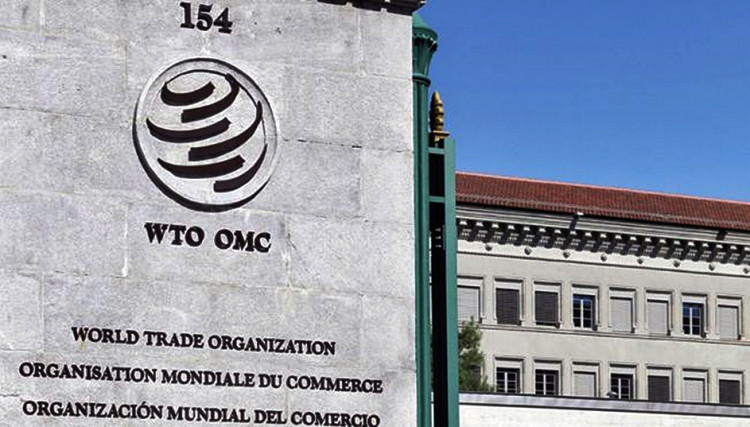China intends to impose sanctions worth $7 billion a year on the United States for ignoring a 2016 ruling in its favor by the World Trade Organization (WTO).
WTO said China filed a dispute with its Secretariat against the United States on Dec. 3, 2013, regarding anti-dumping measures involving Chinese products. In the dispute, China notified the Secretariat of a request for consultations with the United States regarding the use of methodologies used by the U.S. to calculate anti-dumping duties.
China's dispute complained about heavy U.S. anti-dumping duties on several industries such as machinery and electronics, light industry, metals, and minerals. The industries cited by China had an annual export value of up to $8.4 billion in 2013.
China specifically objected to the U.S. using an illegal method called "zeroing" to calculate the monetary penalties it imposed on products allegedly dumped in the U.S. by China. It said zeroing is illegal and is inconsistent with U.S .obligations under the Anti-dumping Agreement.
The WTO explained that the case concerned the U.S. Department of Commerce way of calculating the amount of dumping. Dumping occurs when a country's exports, in this case, China's, are priced to undercut American-made goods in the U.S. market.
The American calculation method known as zeroing greatly increases the amount of anti-dumping duties imposed by the U.S. on foreign producers such as those from China. Zeroing has been repeatedly ruled as illegal in a series of trade disputes brought to the WTO.
China's request for authorization to impose sanctions worth $7 billion a year was published by the WTO. It claims the latest available data showed it had suffered $7.043 billion in damages annually since 2013. China, therefore, requests the WTO's permission to raise trade barriers on U.S. goods to the same amount, which is allowed under WTO rules.
China won the WTO ruling as regards the zeroing dispute in 2016. This judgment was confirmed by an appeal in 2017. The U.S., however, refuses to abide by the WTO ruling and has instead threatened to withdraw from the WTO unless the organization accedes to American demands.
Trade experts noted that China's request for authorization from the WTO to introduce the sanctions will lead to years of legal battles. This process is complicated by president Donald Trump's unvarnished hostility towards the WTO and the concept of free trade.
A long series of U.S. defeat at the WTO involving zeroing caused Trump to say the United States might withdraw from the WTO if "they don't shape up."
The deadline for the United States to comply with the ruling ended Aug. 22. The WTO published an agenda on Sept. 11 announcing a meeting of its dispute settlement body on Sept. 21. This move shows China will take the legal step of asking for authorization for sanctions worth $7 billion annually.





